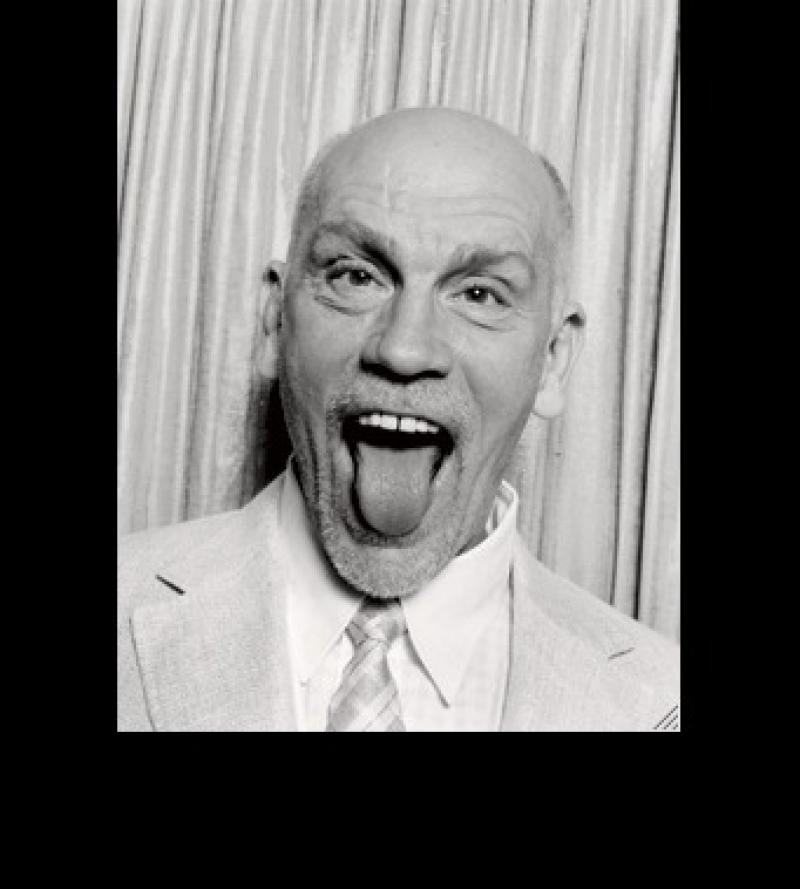The Infernal Comedy, Barbican Hall | reviews, news & interviews
The Infernal Comedy, Barbican Hall
The Infernal Comedy, Barbican Hall
Abhorrently offensive new John Malkovich musical drama stains the Barbican

The Barbican committed a grave sin last night. It forgot that people matter more than art. That their responsibility to the families of those who Jack Unterweger (the subject of John Malkovich's music drama, The Infernal Comedy) murdered trumps any interest in the dramatic potential of Unterweger's bizarre life. However constraining to the autonomy of creativity this may be, these are the rules of common decency.
John Malkovich is Jack Unterweger, serial Austrian prostitute-poacher and killer, fraud, literary aspirant, who published while still in jail and became a cause célèbre, with the likes of Elfriede Jelinek demanding his release. Upon his release in 1990, he became a TV celebrity, journalist and chat-show host and murderer yet again. He hanged himself in 1994, the night he was convicted.
Apart from the portion occupied by the Wiener Akademie and conductor Martin Haselböck, the stage was given over to Malkovich's Unterweger and his charm offensive, a sort of half-baked comedy routine, in which we were showered with ingratiating jokes about the Barbican and life and PCs and women. It's sickening stuff, watching him work the room, witnessing the audience fall for it - falling not for the satire that was lurking behind some of it, but for Malkovich's Unterweger himself.
Swap Unterweger for Mladić. Swap the two singers that came on to represent Unterweger's singers for Bosnian women. And would the audience have accepted the two-hour dramatisation, Mladić holding court, lacing a defense of his crimes with jokes and charm and misogyny, while his victims are occasionally given unsuitable opera arias through which to express themselves? I hope not.
There will be those who claim this was all satire. Parts of it clearly were. The concept of the dead murderer trying to flog his book, True Confessions, was a creaky satire of sorts (Brass Eye, this wasn't). As were surely his excuses - bad parenting, foster care (ho ho). But the rest? What was the rest lampooning? All those musical dramas that offensively glamorise the lives of psychopaths? There aren't any. The only thing this piece could possibly be satirising was itself. Yet the misogyny was all too well planned for it to be a send-up.
That the women had no voice of their own but instead wheeled themselves out, doll-like, Olympia-like, to deliver bleeding-chunk theatrical arias, whose words were inevitably miles away from the sentiments any rape or abuse victim would ever have, was one the most revolting pieces of misogyny I've ever seen given artistic sanction. Just as they were in the real world, Unterweger's female victims are denied their existence yet again. This time their souls are imprisoned in the words and music of the Classical arias of Mozart, Beethoven, Gluck, Haydn and Weber, none of which are in any way
about people who'd been abused or murdered. These arias are about wronged lovers, squabbling partners, love and loss. To have these domestic battles fortifying the voices and consciences of rape and murder victims was profoundly cretinous.
And with Malkovich so poorly distinguishing himself from the character he was playing (his Austrian accent was hopeless), and the audience seeing nothing wrong in lapping up the comedy of a strangler, the atmosphere became poisonous. "Yes, must have had a hard life, that Jack," you could hear them thinking. "He seems such a hoot!"
There were a few attempts to shock this amoral lot out of their chummy, guffawing complacency. Malkovich strangles one of the singers and drags her to the ground. The audience responded by chuckling, as if it was a roguishly loveable act. With this disturbing collective moral stupidity dominating the hall, one couldn't think about musical concerns. Were the Akademie good? I guess so. But shame on them and Haselböck for getting involved.
The enduring question was, how was the Barbican getting away with this? Why were the audience not disgusted at Malkovich's Unterweger as they would have been if he'd come on playing a show-handing Fred West? That was ultimately the stage director/writer Michael Sturminger's fault. The victims were put in an operatic muzzle; the violence was by and large pappified, excused or ignored; and the supposed wit and brilliance of this man Malkovich-Unterweger was brought centre stage. And as we know from the examples of Polanski and Naipaul, in the West, murder, paedophilia, misogyny are all forgiven if you find yourself considered part of an artistic elite - and Unterweger, remember, had literary gifts, so, murder-schmurder.
The one saving grace of all this jaw-dropping dubiousness is that one didn't have time to think much about Malkovich's acting and accent. This drama was not just weak; it was immoral. I wouldn't urge you not to go; I would urge you to go and to picket.
Add comment
The future of Arts Journalism
You can stop theartsdesk.com closing!
We urgently need financing to survive. Our fundraising drive has thus far raised £49,000 but we need to reach £100,000 or we will be forced to close. Please contribute here: https://gofund.me/c3f6033d
And if you can forward this information to anyone who might assist, we’d be grateful.

Subscribe to theartsdesk.com
Thank you for continuing to read our work on theartsdesk.com. For unlimited access to every article in its entirety, including our archive of more than 15,000 pieces, we're asking for £5 per month or £40 per year. We feel it's a very good deal, and hope you do too.
To take a subscription now simply click here.
And if you're looking for that extra gift for a friend or family member, why not treat them to a theartsdesk.com gift subscription?

Comments
...
...
...
...
...
...
...